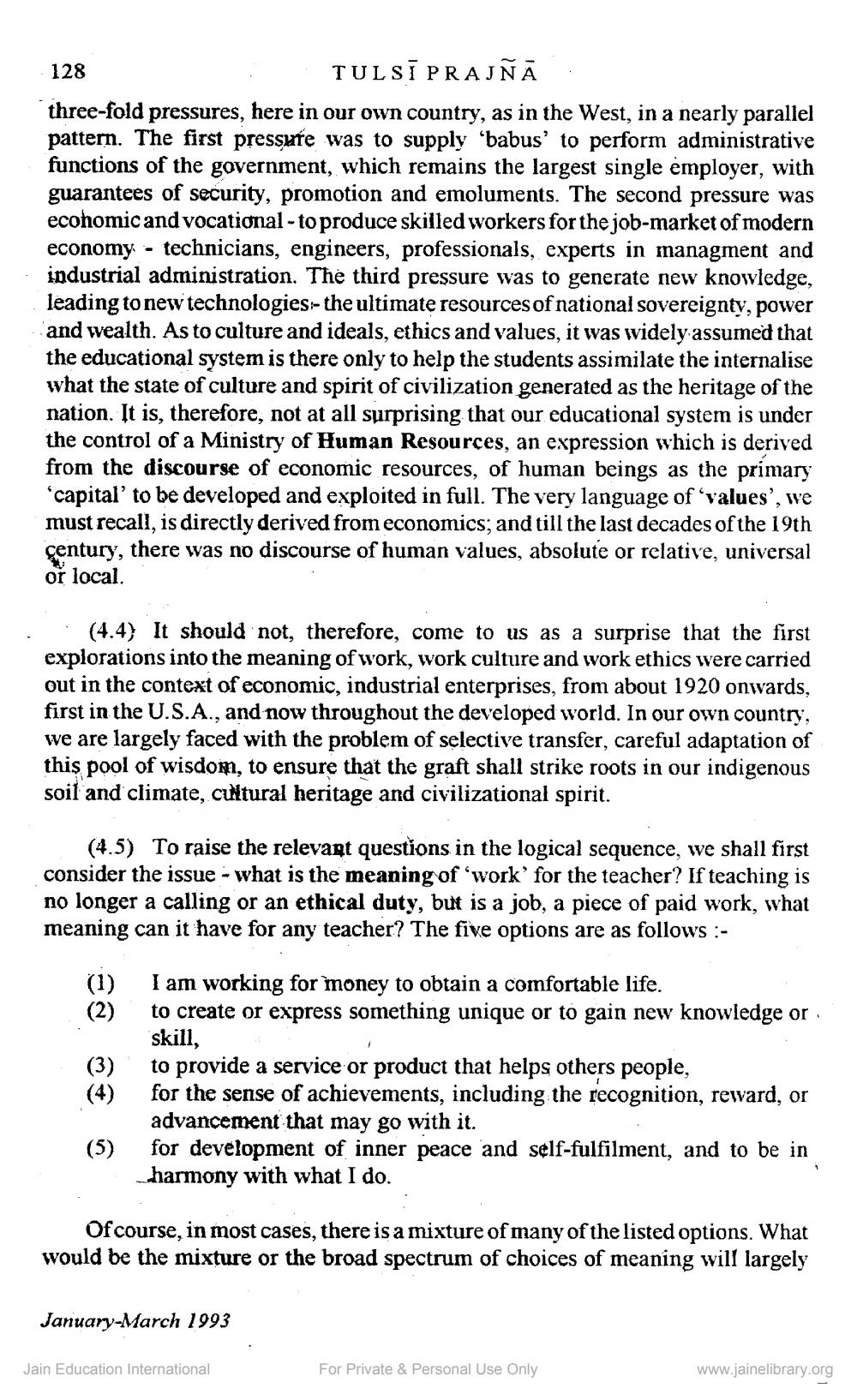________________
128
TULSI PRAJŇA three-fold pressures, here in our own country, as in the West, in a nearly parallel pattern. The first pressure was to supply 'babus' to perform administrative functions of the government, which remains the largest single employer, with guarantees of security, promotion and emoluments. The second pressure was ecohomic and vocational - to produce skilled workers for the job-market of modern economy - technicians, engineers, professionals, experts in managment and industrial administration. The third pressure was to generate new knowledge, leading to new technologies- the ultimate resources of national sovereignty, power and wealth. As to culture and ideals, ethics and values, it was widely assumed that the educational system is there only to help the students assimilate the internalise what the state of culture and spirit of civilization generated as the heritage of the nation. It is, therefore, not at all surprising that our educational system is under the control of a Ministry of Human Resources, an expression which is derived from the discourse of economic resources, of human beings as the primary 'capital' to be developed and exploited in full. The very language of 'values', we must recall, is directly derived from economics, and till the last decades of the 19th century, there was no discourse of human values, absolute or relative, universal or local.
(4.4) It should not, therefore, come to us as a surprise that the first explorations into the meaning of work, work culture and work ethics were carried out in the context of economic, industrial enterprises, from about 1920 onwards, first in the U.S.A., and now throughout the developed world. In our own country, we are largely faced with the problem of selective transfer, careful adaptation of this pool of wisdom, to ensure that the graft shall strike roots in our indigenous soil and climate, cultural heritage and civilizational spirit.
(4.5) To raise the relevant questions in the logical sequence, we shall first consider the issue - what is the meaning of 'work' for the teacher? If teaching is no longer a calling or an ethical duty, but is a job, a piece of paid work, what meaning can it have for any teacher? The five options are as follows :
(1)
lam w
(2)
I am working for money to obtain a comfortable life. to create or express something unique or to gain new knowledge or skill, to provide a service or product that helps others people, for the sense of achievements, including the recognition, reward, or advancement that may go with it. for development of inner peace and self-fulfilment, and to be in harmony with what I do.
(5)
Of course, in most cases, there is a mixture of many of the listed options. What would be the mixture or the broad spectrum of choices of meaning will largely
January March 1993
Jain Education International
For Private & Personal Use Only
www.jainelibrary.org




